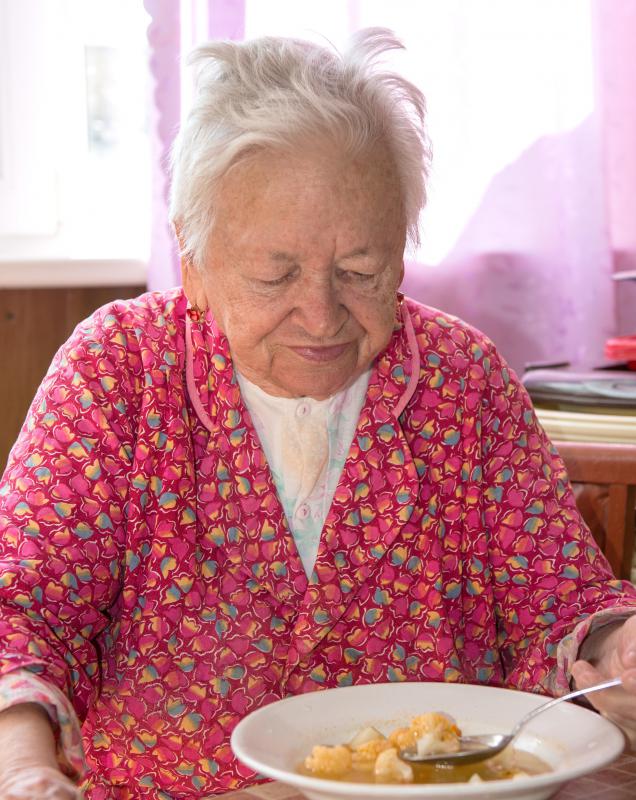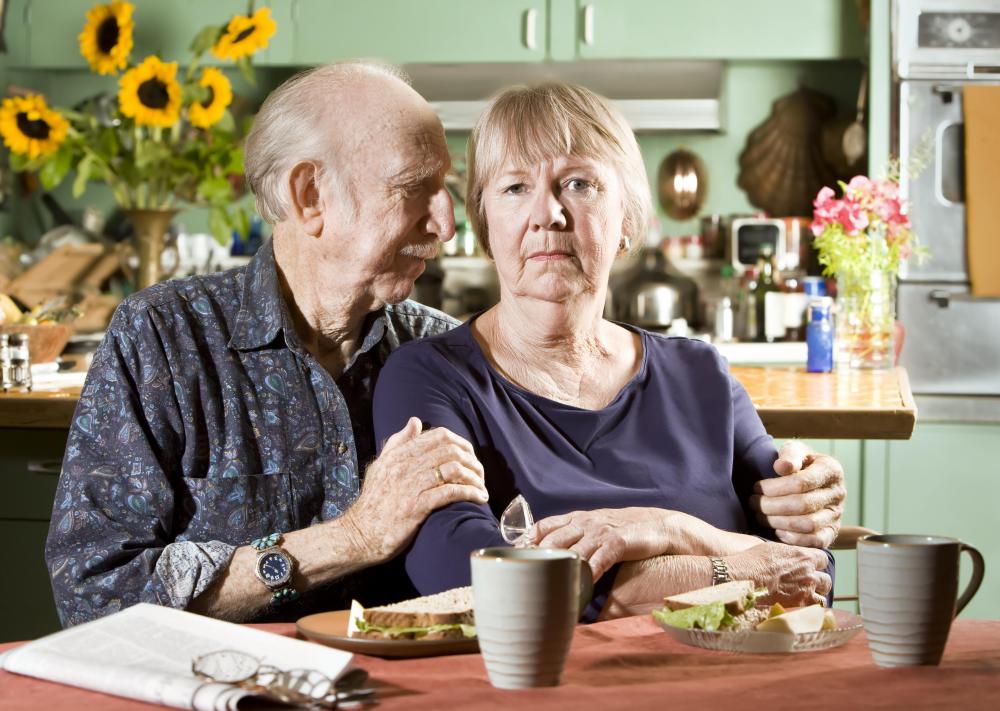At WiseGEEK, we're committed to delivering accurate, trustworthy information. Our expert-authored content is rigorously fact-checked and sourced from credible authorities. Discover how we uphold the highest standards in providing you with reliable knowledge.
What are the Different Types of Geriatric Syndromes?
Geriatric syndromes fall into seven interrelated categories characterized by one syndrome commonly affecting another. Sleep disorders, falls, nutritional deficiencies, and pain are geriatric syndromes that typically affect the elderly. Older adults also commonly suffer from incontinence, confusion or dementia, and skin problems. Doctors who treat the elderly routinely evaluate how each syndrome and treatments for these conditions contribute to difficulty in another area.
Older people commonly have trouble sleeping for various reasons. When they become sleep deprived, it might affect geriatric syndromes that lead to falls, confusion, and depression. Geriatric syndromes defining incontinence and pain may contribute to sleep disorders, because pain might keep an elderly person awake. Frequent urination during the night commonly prevents an older person from getting adequate rest.

Another one of the geriatric syndromes involves nutrition, often linked to medication older people use for unrelated health problems. Some medications might decrease a person’s appetite or inhibit the absorption of essential minerals and vitamins. This can precipitate thin bones and muscle weakness, causing falls. Poor nutrition might provoke dehydration, weakness, and dizziness, leading to confusion and pain from falling.

When a geriatric patient suffers from pain syndrome, it typically affects other geriatric syndromes, including sleep problems and nutritional disorders. For example, if poorly fitting dentures or tooth decay generate discomfort, the older patient may not eat enough to stay healthy. Side effects of medication used to treat pain might contribute to falls, incontinence, and confusion.

Incontinence might lead to bladder and kidney infections and dehydration from insufficient fluid intake. A lack of fiber in the diet may cause bowel problems that bring about confusion. Conditions that provoke pain might prevent an elderly patient from getting to the bathroom quickly enough, causing wetting or soiling accidents. Geriatric patients who suffer from incontinence might also isolate themselves to avoid embarrassment, leading to depression.

The most common of the seven geriatric syndromes centers on falls. Older adults who suffer vision problems, arthritis, or cognitive disorders face a greater risk of bone fractures, especially if low blood sugar linked to malnutrition causes weakness. An obvious link exists between the geriatric syndromes of falling and pain.
Bedridden or wheelchair-bound geriatric patients commonly suffer from pressure sores, also called bed sores. These painful lesions might become infected and result in confusion if the pain is not controlled. Bladder problems are listed as a common condition linked to a breakdown of skin tissue, along with trouble sleeping.
AS FEATURED ON:
AS FEATURED ON:


















Discuss this Article
Post your comments